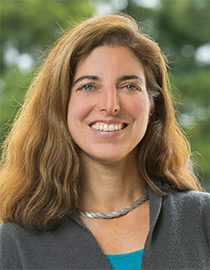Abstract
 This Article confronts a dangerous contemporary trend: the political harassment of public university professors by activists on the right and left, through the mechanism of open records requests. It is timed to a moment when universities and state legislatures are grappling with the consequences of escalating public records intrusion into scholars’ work that threatens enterprises as diverse as climate change research and biomedical experiments.
This Article confronts a dangerous contemporary trend: the political harassment of public university professors by activists on the right and left, through the mechanism of open records requests. It is timed to a moment when universities and state legislatures are grappling with the consequences of escalating public records intrusion into scholars’ work that threatens enterprises as diverse as climate change research and biomedical experiments.
Every U.S. state has an open records law—a statute that permits any person, for any reason, to access the records of public agencies. Unknown to many, these state laws typically sweep public universities within their definition of “agencies,” making professors’ draft manuscripts, emails, and even exam questions potentially fair game for records requesters. In the past decade, scholars in states with broad open records laws have increasingly received harassing records requests from requesters politically or economically threatened by the intellectual work they seek to reveal. Such requests undermine the peer-review process and the communications through which scholars explore and contest ideas, impairing the core intellectual functions of the university. Equally worrisome, harassing record requests chill research on critical contemporary issues—a knowledge-generation role of universities that is essential to a democracy, which depends on an informed citizenry.
This Article argues that professors should never have been subject to public records laws in the first instance, both because they are not engaged in public governance, and because open records laws are fundamentally incompatible with academic freedom. It further argues that the best way to stanch the present records request intrusion into scholars’ work is to create a broad scholar-records exemption from existing state laws.
While some commentators have described the problem of public records harassment of university faculty, none have presented an in-depth theoretical justification for reform, nor an examination of the full range of harms stemming from public demands for scholar records. This is also the first article to propose a specific legislative fix, informed by real-world legal battles over scholar records disclosure. By presenting a comprehensive and prescriptive issue treatment, this Article aims to help open records reform cross the political finish line.
